While there are many “eminent Victorians” in British military history the French have fewer such characters. One largely unknown outside of France was Major Jean-Baptiste Marchand, who led the French expeditionary force during the Fashoda Incident.
Born in Thoisssey, Ain during the Second French Empire in 1863, he participated in the French conquest of Senegal and was wounded at the capture of Diena by the French in 1889. He explored the sources of the Niger River and even tracked the source of the Nile.
He was sent to occupy the areas around Fashoda – also known as Kodok – in the Sudan in an attempt to bring this region under French control. It had been largely “abandoned” by the British and Egyptian forces following the failed attempt to relieve Khartoum in 1885.
When the French sent forces, led by Marchand, to expand their influence in the Nile Valley region, the British stepped up their game so to speak and this led to the re-conquest of the Sudan by an Anglo-Egyptian army led by Horatio Herbert Kitchener. This now legendary campaign saw the Sudanese Mahdist forces defeated at the Battle of Atbara in April 1898 and in the September 1898 the Anglo-Egyptian Army destroyed the Madhist at the capital of Omdurman.
The remaining Mahdist forces, under Khalifa Abdullah fled to southern Sudan and this is where Kitchener met up with Marchand at Fashoda, resulting in the Fashoda Incident.
The fascinating part of the story involves the trek made by the French, and which is largely forgotten today. In total a French force of 120 tirailleurs (light infantry) soldiers – mostly colonial troops – along with a total of 12 officers (Captain Marcel Joseph Germain – Captain Albert Baratier – Captain Charles Mangin – Captain Victor Emmanuel Largeau – Lieutenant Félix Fouqué – teacher Dyé – Doctor Jules Emily Major – Warrant Officer De Prat – Sergeant George Dat – Sergeant Bernard – Sergeant Venail – the military interpreter Landerouin) left Brazzaville in Belgian Steamer.
The group, led by Marchand, steamed up to the Ubangi River and then headed overland through jungle and scrub before reaching the deserts of the Sudan. The group traveled across the Sudan to the Nile River, and met up with two other groups heading west from the French colonies on the Indian Ocean.
In total, the epic trek took 14 months across the heart of Africa and only arrived in Fashoda on July 10, 1898. When news that Kitchener met up with Marchand in late September, it inflamed the imperial pride of both nations.
The crisis actually continued throughout the early autumn, and there was so much widespread popular outrage that the two nations nearly went to war! Both nations began to mobilize their fleets, but much can be said to the credit of Marchand who remained a cool head throughout the crisis.
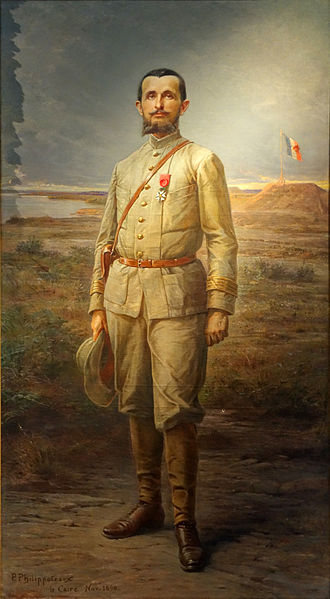
An early 20th century portrait of Marchand at Fashoda. Interestingly while many illustrations suggest he wore a French sun helmet this painting shows him with a slouch hat
In the end the French and British agreed that the Nile and Congo rivers would mark the frontier between their spheres of influence. The French Foreign Minister, Théophile Delcassé, saw that there was no advantage in a colonial war with the British and instead this remained the last serious colonial dispute between the British and French. Its classic diplomatic solution is also considered to be a precursor to the Entente Cordiale.
As for Marchand, his adventures continued. He fought with the French expeditionary forces in China during the 1900 Boxer Rebellion. He was promoted to the rank of General in World War I and was wounded twice, first at the Battle of Champagne in 1915 and a year later at the Battle of Somme. He retired from the Army in 1919 and died in 1934.
He was a man of adventure in the truest sense and likely helped stop a war between his nation and Great Britain.

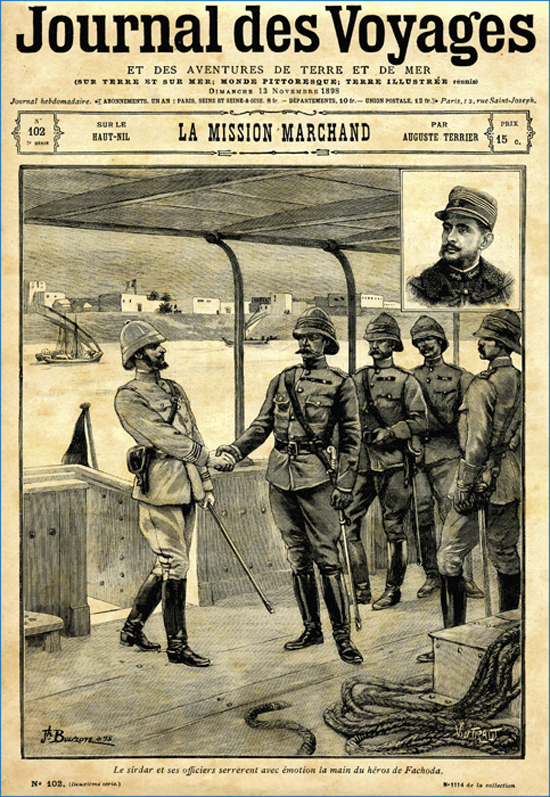
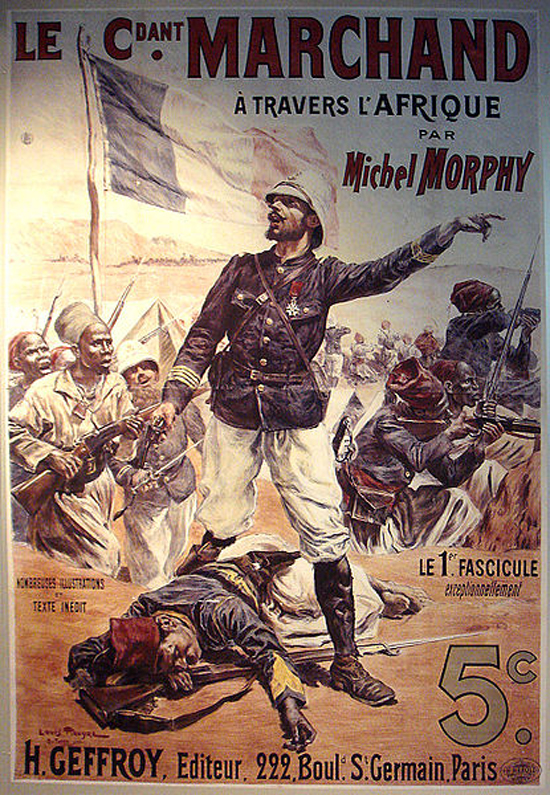
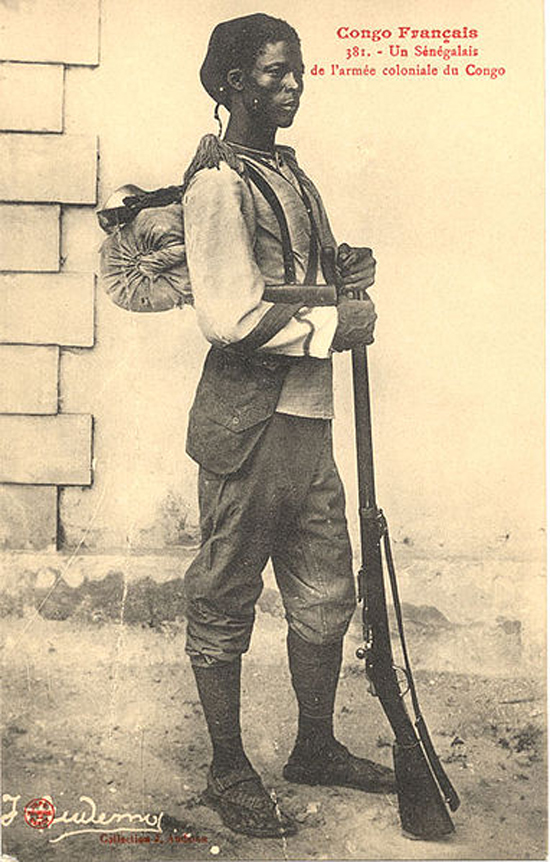
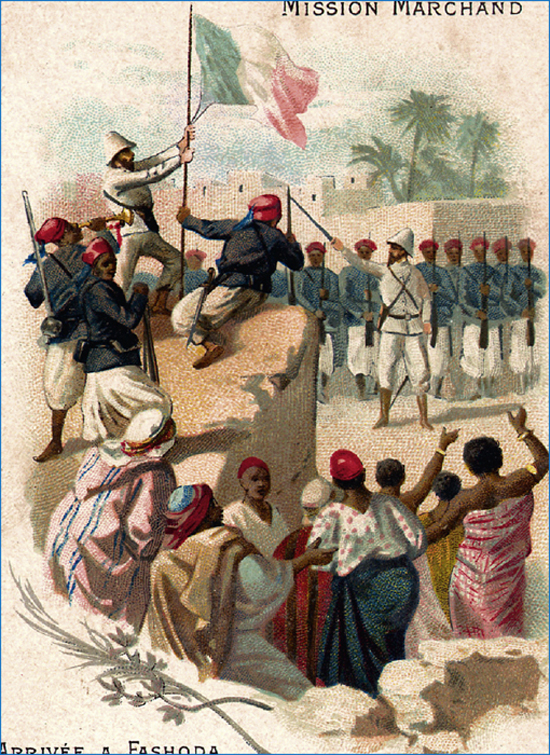
Pingback: Union Jack Triumphant…almost. | The British in Crete, 1896 to 1913.